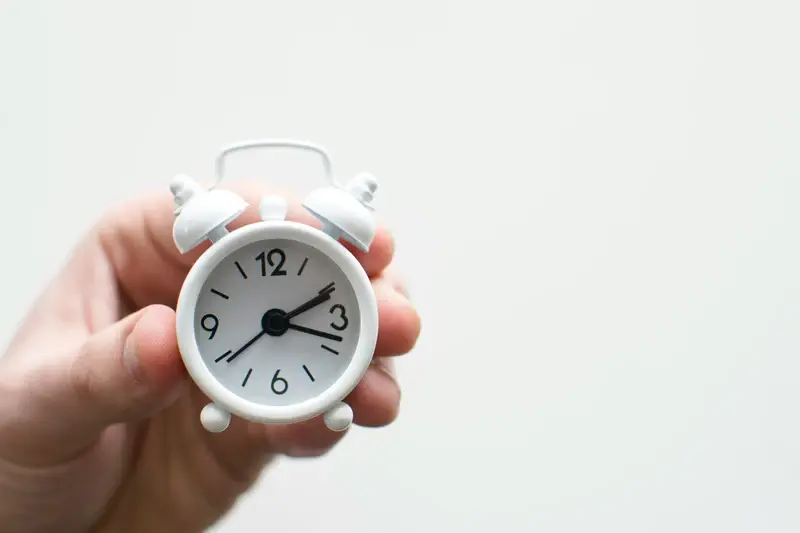How Long Does It Take To Build A Professional App?
Ask any business owner about their app development timeline and you'll get wildly different answers—some say three months, others insist it takes a year or more. The truth is, there's no single answer because every app is different. A simple utility app might take 2-3 months to build, whilst a complex social platform could easily require 6-12 months of development time. The real challenge isn't just knowing how long your specific app will take; it's understanding all the moving parts that affect that timeline.
Over the years, I've noticed that most people drastically underestimate how long app development actually takes. They think about the coding part—which is understandable—but forget about planning, design, testing, and getting approved by app stores. Each phase has its own timeline, and they don't always run smoothly one after another.
The biggest mistake businesses make is not planning for the full app development timeline from day one
This guide breaks down every stage of the app development process so you can set realistic expectations and plan your project properly. We'll look at different types of apps, explore each development phase, and cover the factors that can speed up or slow down your timeline. By the end, you'll have a clear picture of what to expect when building your professional app.
Understanding Different Types of Apps
When clients come to me asking how long their app will take to build, the first question I always ask is "what type of app are you making?" You'd be surprised how many people haven't really thought about this—they just know they want an app. The thing is, different types of apps take wildly different amounts of time to develop, and understanding these differences will help you set realistic expectations for your project.
Native vs Cross-Platform Apps
Native apps are built specifically for one platform—either iOS or Android. They're faster and can access all the phone's features, but you'll need separate versions for each platform. Cross-platform apps use frameworks like React Native or Flutter to work on both platforms from a single codebase. They're quicker to develop but might not perform quite as well as native apps.
Complexity Categories
I tend to group apps into three main categories based on complexity:
- Simple apps with basic features like calculators or flashlights (2-4 months)
- Moderate apps with user accounts, data storage, and API integrations (4-8 months)
- Complex apps with real-time features, payment systems, and advanced functionality (8+ months)
The type you choose will be the biggest factor in determining your timeline—so it's worth getting this decision right from the start.
Planning and Requirements Phase
Right, let's talk about the planning stage—this is where everything begins and trust me, getting this bit wrong will haunt you later. The planning and requirements phase typically takes 2-4 weeks for most projects, but I've seen it stretch much longer when clients aren't quite sure what they want. And that's perfectly normal! Most people come to us with a rough idea rather than a detailed specification.
During this phase, we're basically detective work—asking loads of questions, understanding your users, and figuring out exactly what your app needs to do. We'll map out user journeys, define features, and create what we call a requirements document. This isn't just boring paperwork; it's your project's roadmap.
Key Activities in Planning
- User research and persona development (3-5 days)
- Feature specification and prioritisation (5-7 days)
- Technical architecture planning (2-3 days)
- Timeline and budget finalisation (1-2 days)
The planning phase directly impacts your overall app development timeline. Skip corners here and you'll end up with scope creep, endless revisions, and a project that drags on for months longer than expected. I've watched projects double in length because someone rushed through requirements gathering.
Get your stakeholders to sign off on requirements before moving forward. Changes later cost 10x more in time and money than getting it right upfront.
Design Phase Timeline
Right, so you've got your requirements sorted and now it's time to make your app look brilliant. The design phase is where your app starts coming to life visually—and let me tell you, this bit can make or break your entire project. I've seen too many apps with solid functionality that nobody wanted to use simply because they looked terrible or were confusing to navigate.
User Experience Design
First up is UX design, which typically takes 1-2 weeks for a straightforward app. This is where we map out how users will move through your app; think wireframes, user journeys, and making sure everything makes sense. No point having a beautiful app if people can't figure out how to use it! Complex apps with multiple user types or intricate workflows can stretch this to 3-4 weeks.
Visual Design
Once the structure is solid, visual design takes another 2-3 weeks. This covers your colour schemes, typography, icons, and all the visual elements that give your app personality. If you need custom illustrations or animations, add another week or two. Some clients want multiple design concepts to choose from—that's fine, but it will extend your timeline. The whole design phase usually wraps up in 3-5 weeks for most apps, though I've worked on projects that needed 8 weeks when the requirements were particularly demanding.
Development Phase Breakdown
Right, let's talk about the actual building part—this is where your app development timeline really takes shape. The development phase is typically the longest part of any mobile app project, and honestly, it's where most of the magic happens. Your developers will be writing code, integrating features, and bringing your designs to life.
Frontend and Backend Development
Most apps need two main parts: the frontend (what users see and touch) and the backend (the server stuff that makes everything work). Simple apps might take 8-12 weeks to develop, whilst more complex ones can stretch to 20+ weeks. The timeline depends on how many features you're including—each new feature adds time to your app project timeline.
Every line of code needs to be written, tested, and integrated with the rest of the system, which is why development takes longer than most people expect
Platform Considerations
Building for iOS and Android simultaneously will extend your mobile app development time by about 30-50%. That's because each platform has different requirements and coding languages. Native apps generally take longer than cross-platform solutions, but they often perform better. Your development team will also need time for regular reviews and adjustments—because let's face it, things rarely go exactly to plan the first time around!
Testing and Quality Assurance
Right, let's talk about testing—the bit that most people want to skip but absolutely shouldn't. I've seen too many apps launch with bugs that could have been caught if they'd just spent a bit more time on quality assurance. Testing usually takes about 2-4 weeks for a standard app, though complex apps might need 6-8 however that depends on what you're building.
Different Types of Testing
We don't just check if the app works (though that's obviously important!). There's functional testing to make sure every button does what it should; performance testing to check it doesn't crash when lots of people use it at once; and device testing across different phones and tablets. Then there's user testing—watching real people use your app and seeing where they get confused or stuck.
The Reality of Bug Fixing
Here's the thing about bugs: they multiply. Fix one and sometimes two more pop up. That's why we build extra time into our testing phase. I've learnt that rushing this stage always backfires because you'll spend weeks after launch firefighting issues that could have been sorted beforehand. Good testing means your app actually works when people download it, which seems obvious but you'd be surprised how many don't!
App Store Submission Process
Right, you've tested your app and ironed out all the bugs—now comes the final hurdle before launch day. The app store submission process can feel daunting, but honestly it's more straightforward than most people think. Both Apple's App Store and Google Play Store have their own review processes, and each takes a different amount of time to complete.
Apple tends to be the stricter of the two; their review process typically takes 24-48 hours these days, though it can stretch longer if there are issues. Google Play is usually faster, often approving apps within a few hours. But here's the thing—rejections happen, and when they do, you're looking at additional time to fix problems and resubmit.
Common Rejection Reasons
- Missing privacy policy or terms of service
- App crashes or doesn't function properly
- Inappropriate content or imagery
- Misleading app descriptions
- Copyright infringement issues
- Poor user interface design
Preparation Timeline
Before you even submit, you'll need time to prepare all your store assets—screenshots, app descriptions, icons, and promotional materials. This preparation phase usually takes 2-3 days if you're organised. Factor in potential rejections and you're looking at roughly 1-2 weeks total for the entire app store submission process to complete successfully.
Always submit your app at least two weeks before your planned launch date to account for potential delays and rejections.
Factors That Affect Timeline
After years of building apps for everyone from corner shop owners to FTSE 100 companies, I can tell you that no two projects are exactly the same—and that's what makes timeline predictions so tricky! The truth is, your app development timeline depends on several key factors that can either speed things up or slow them right down.
App Complexity and Features
The biggest factor? What your app actually does. A simple calculator app might take a few weeks, but if you want real-time chat, payment processing, and GPS tracking all rolled into one, you're looking at months not weeks. Each feature adds time—sometimes more than you'd expect because they need to work together smoothly.
Team Size and Experience
Having more developers doesn't always mean faster delivery (I know, counterintuitive right?). A small experienced team often outpaces a large inexperienced one. Communication becomes harder with bigger teams too; coordinating five people is much trickier than coordinating two.
Your own involvement matters massively as well. Clients who respond quickly to questions and provide clear feedback keep projects moving. Those who disappear for weeks or change their minds constantly? Well, let's just say their timelines tend to stretch considerably. The platforms you're targeting—iOS only, Android only, or both—will also affect how long everything takes.
Conclusion
After eight years of building apps for everyone from scrappy startups to massive corporations, I can tell you that the question "how long does it take to build an app?" still makes me smile. It's like asking how long a piece of string is—there's no single answer that fits every situation. What I can tell you is that most professional apps take anywhere from 3-9 months to build properly, and that's with a good team who knows what they're doing.
The app development timeline isn't just about coding—that's actually only part of the puzzle. You've got planning, design, development, testing, and getting through the app stores. Each phase matters, and rushing any of them usually means trouble later on. I've seen too many projects that tried to cut corners on planning or skip proper testing, only to end up taking twice as long in the end.
Here's what I'd want you to remember: building a quality app takes time, and that time is an investment in your success. The mobile app development time you spend upfront getting things right will save you months of headaches down the road. Plan for the long game, work with people who understand the process, and don't let anyone convince you that good apps can be built overnight—they can't.
Share this
Subscribe To Our Learning Centre
You May Also Like
These Related Guides

How Long Does It Take To Develop A Smartwatch App?

Can I Start With Cross-Platform and Switch to Native Later?



